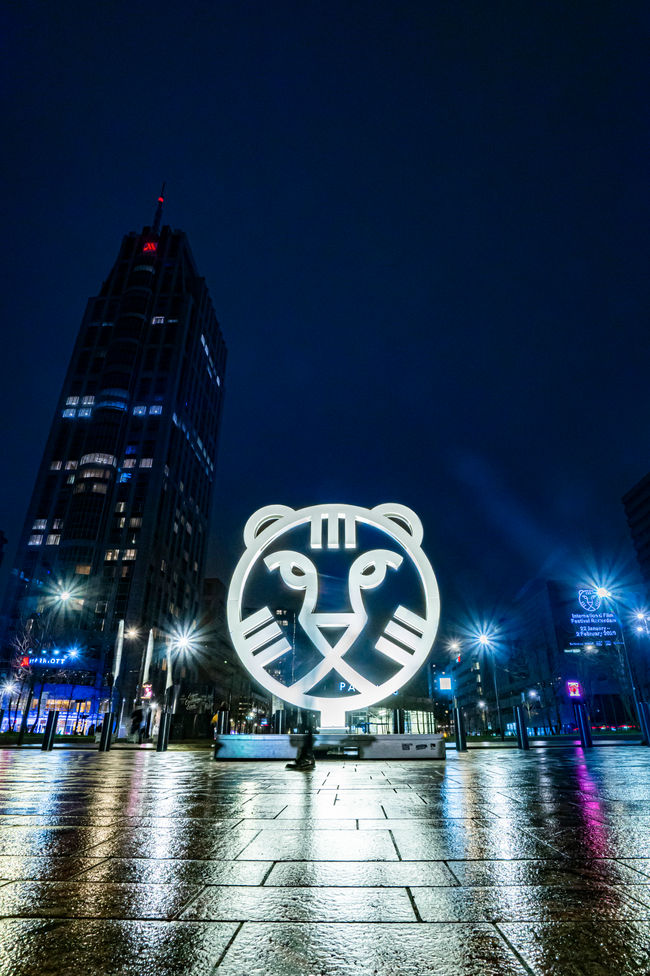Ordinary Heroes: Made in Hong Kong
28 January 2020
Film can help you understand what is happening in Hong Kong
It has almost been a year since the political protests in Hong Kong started, and the end seems nowhere in sight. The programme Ordinary Heroes: Made in Hong Kong – part of the Perspectives section – gives you an insider view into the political and social turmoil currently raging in one of the world’s most cinematic cities.
“I have been following the political situation in Hong Kong very closely for the past five years”, says film critic Shelly Kraicer, who curated the programme for the festival. “And I felt it could be important to help people outside Hong Kong understand what is happening now.”
Film can provide an important tool to do just that. “I have always been very interested in the links between cinema and society, and between cinema and politics. I don’t really think there is such a thing as apolitical cinema. Every film in some way reflects and comments on what is happening in the outside world.”
The very first film that caught Kraicer’s eye was a short: Last Night in Sham Shui Po (part of the combined shorts programme What’s Next), a wordless three minute short by documentary filmmaker Andrew Lang. “It’s a single slow-motion take that looks eerily beautiful, and is set to gorgeous music – What a Wonderful World by Louis Armstrong – but at the same time, the film is about the riot police confronting and attacking protesters. It is both film art and a deeply political statement.”
At the heart of the programme are four feature films that will have their world or international premiere at the festival. “If We Burn by James Leong and Lynn Lee is a work in progress. As long as the protests continue, they continue filming. They have made a version of the film especially for Rotterdam. Most of the time filmmakers are right there, in the thick of it, together with the protestors. They have a cinematic eye and an immersive style of documentary film making you just can’t look away from. We Have Boots by Hong Kong filmmaker Evans Chan is a more classic interview-based documentary. The film gives an intellectual and historical overview of the Hong Kong protests, based on interviews with key participant of the Umbrella Movement – which was kind of a precursor of the current protests – from 2014. It gives an insight into how the mindset has changed over the years.”
The third world premiere is a completely different creature: The Cube Phantom by Alan Lau. “It’s an experimental dance film in ten parts. Each part comes with different music and a different dance style – all choreographed by Jordann de Santis. Each section is set in a recognisable location, all reflecting on what’s happening in Hong Kong right now. It’s a delightfully expressive work of art, that came directly from the protest movement.”
The international premiere Memories to Choke On, Drinks to Wash Them Down by Ming Kai Leung and Kate Reilly also consists of multiple parts, three fiction, one fact. “Each story focusses on a different aspect of Hong Kong lives today. Though it may seem whimsical and light-hearted on the outside, the stories are also deeply rooted in the constant stress the people of Hong Kong are under.”
Not all films in the programme are new. Among the 24 films and shorts there is also a handful of older films, classics from the period between 1974 to 2005. “These films highlight themes like youth alienation, social and wealth inequality, mainland versus Hong Kong tensions and the power of the police and the criminal underworld. These additions all show that the issues the people in Hongkong are grappling with today have always been there. The protests didn’t just come out of nowhere.”
Of the older films, two classics deserve special mention. The first is Cageman by Jacob Cheung from 1992. “A brilliant, socially committed arthouse film about poor middle-aged men in Hong Kong who live in cages inside tenements, because that is all they can afford. It’s a Hong Kong classic that is rarely screened, based on a real phenomenon.”
Johnny Mak’s only film as director, Long Arm of the Law from 1984, is also essential viewing. “When you think about Hong Kong cinema, you think about action films. Long Arm of the Law is an action classic, but also so much more than that. It’s about vicious and violent mainland gangsters who are being besieged in a poor Hong Kong neighbourhood. It has got a ferocity and power and a chilling beauty that has influenced Hongkong cinema ever since.”
In the end, Kraicer hopes visitors will sample as much of the programme as possible. “I really want the programme to provide both a context to what is happening in Hong Kong, as well as give a voice to Hong Kong people and filmmakers struggling with the realities of today.”
Written by Bregtje Schudel



